Is there a way to determine if the text of two different functions is identical?
x <- function(x) print(x + 2)
y <- function(x) print(x + 2)
identical(x, y)
[1] FALSE
identical(mget("x"), mget("y"))
[1] FALSE
identical(unname(mget("x")), unname(mget("y")))
[1] FALSE
